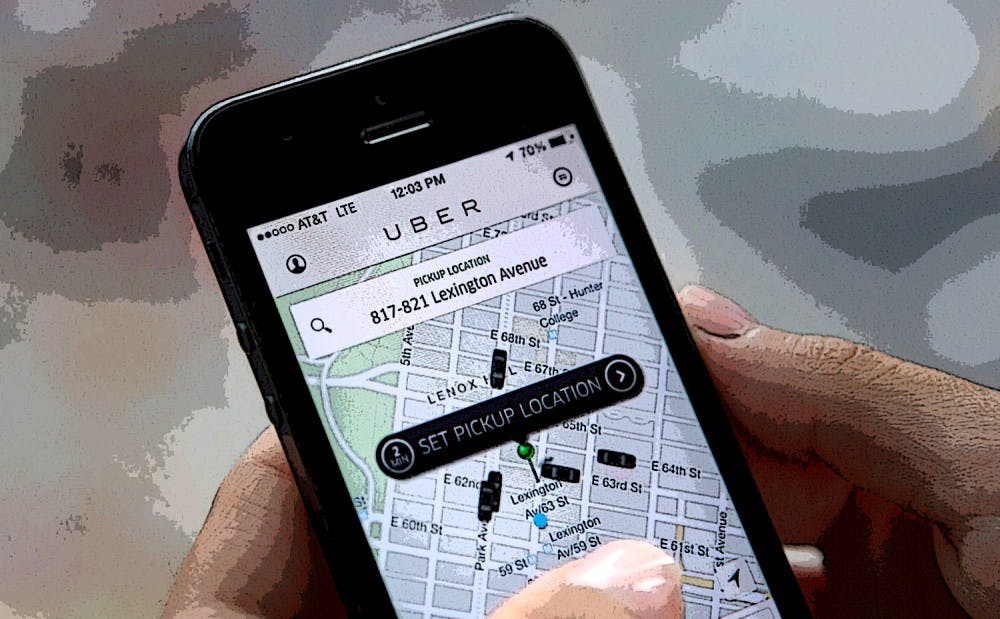Ever ridden in an Uber with Duke footing the bill?
Over the past year, a pilot program between Duke and Uber has covered the fees for students and employees traveling to certain locations in Durham and on campus. However, the program recently retracted the Emily Krzyzewski Center, the Durham Crisis Response Center, El Centro Hispano, the Durham Nursing and Rehabilitation Center and the Animal Protection Society of Durham from its list of destinations because it ran out of money for the remainder of the academic year.
"It's really quite unfortunate that we have so many students who want to do great projects in the community and physically can't get there," said senior Maya Durvasula, who is president of the Duke Partnership for Service.
The program—a collaboration between dPS and Duke Student Government—was designed to solve the transportation issues encountered by difficult-to-reach service organizations around Duke.
Approved destinations for the program included places that were farther than two blocks from the Bull City Connector or more than a 15-minute walk off either campus, Durvasula said. The program did not fund sites outside of Durham.
Durvasula explained that some organizations must now cut the number of times they tutor or must alter their work with community partners because transportation is problematic.
Senior Liz Brown, vice president of the Durham and regional affairs committee for DSG, said that the program was a "bottomless pit of money" because there were no strict regulations. For instance, people going to the same service event could each individually take their own UberXL car, and Brown also mentioned that students may have been using these free Ubers for personal uses.
Duke paid for 1,313 rides in the program—430 to the Emily Krzyzewski Center, 714 to Durham Nursing and Rehabilitation Center, 146 to El Centro Hispano, 14 to the Animal Protection Society of Durham and nine to the Durham Crisis Response Organization, Durvasula added. The average fare of these rides was $7.84.
Brown said that next year, the Uber program will be run with more oversight, efficiency and planning by dPS.
“Uber codes are about the least efficient way we can do it," Durvasula said. "There was no way we could restrict it to service organizations we had approved, we couldn’t restrict the time periods it was being used."
In the future, she noted that the program will consider less expensive options—such as public transportation or carpooling—for getting people to service learning events. Durvasula mentioned that she wanted to focus on minimizing cost by consolidating more students into one Uber instead of riding in different Ubers to the same event.
Still, she insisted that even if the money has not been used in the most efficient way, it still served its initial purpose—getting people to service locations.
Brown said that next year, dPS will run the program more like a grant where each service group will receive an allocated amount of money at the beginning of the academic year for transportation. She noted that this change will make the program more regulated. She noted that dPS will allocate enough money for each group, particularly if the groups are wise with their financial planning.
“Groups will get a capped amount of money based on how far they're going, how many people they have and based on people sharing Ubers,” Brown said.
Get The Chronicle straight to your inbox
Signup for our weekly newsletter. Cancel at any time.

